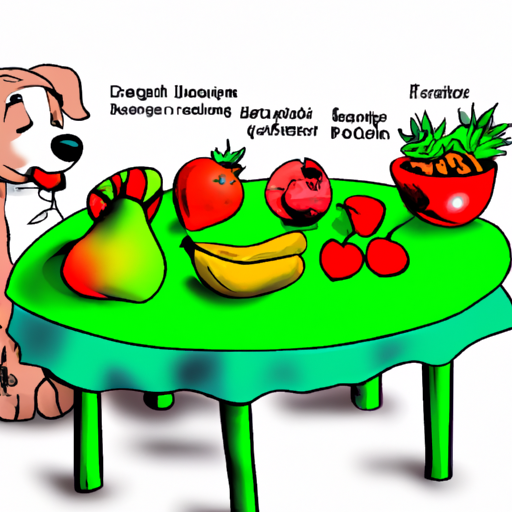As a caregiver for your beloved four-legged friend, you always want to ensure they’re getting the best possible nutrition. This guide is going to walk you through the world of fruits that are not only safe but also beneficial for your dogs.
H2: An Overview of Safe Fruits for Dogs
Just as fruits play a crucial role in human diets, they can also provide vital nutrients for dogs. However, not all fruits are safe. Here’s a brief rundown of some fruits that you can confidently share with your furry friend:
- Apples
- Bananas
- Blueberries
- Cranberries
- Mangoes
More details about these fruits and their benefits will be discussed in the following sections.
H2: Apples – A Bite of Health
Apples are a fantastic source of vitamins A and C, as well as dietary fiber. They make a great low-protein, high-fiber snack for older dogs. But remember to remove the seeds and core as they can pose a choking hazard.
H2: Bananas – Potassium-packed Snack
Bananas are another excellent choice for dogs. They’re packed with potassium and vitamins, which can benefit your dog’s heart and kidney health. However, due to their high sugar content, they should be given in moderation.
H2: Blueberries – Tiny Antioxidant Bombs
Blueberries are antioxidant powerhouses that can provide a range of health benefits for your dog. They are packed with vitamins, fiber, and are low in calories, making them an ideal treat.
H2: Cranberries – For Urinary Health
Cranberries, both fresh and dried, are safe for dogs to eat. They’re known for their ability to support urinary tract health. However, some dogs might not like their tart taste.
H2: Mangoes – Tropical Delight
Mangoes are a tropical treat your dogs can enjoy. They’re packed with vitamins A, B6, C, and E. Remember to remove the hard pit before giving mangoes to your dog.
FAQ Section
To conclude, let’s address some common questions about feeding fruits to dogs:
Q: Can dogs eat grapes?
A: No, grapes are toxic to dogs and can lead to kidney failure.
Q: Should I peel fruits before giving them to my dog?
A: It depends on the fruit. For example, apples and mangoes should be peeled, while blueberries do not need to be.
Q: How often can I give fruits to my dog?
A: Fruits should be an occasional treat, not a staple in your dog’s diet.
Q: Can dogs have fruit juice?
A: No, fruit juice often has added sugars, which are not healthy for dogs.
Remember, it’s always best to consult with your vet before introducing new foods into your dog’s diet.



